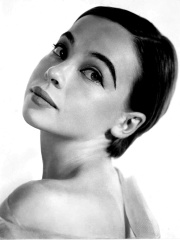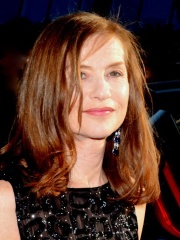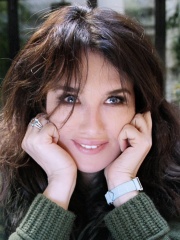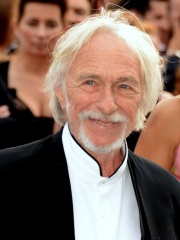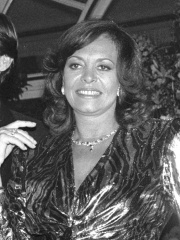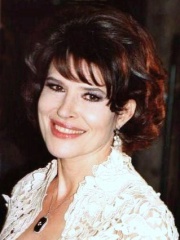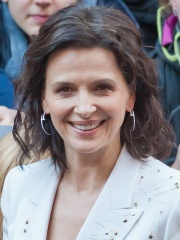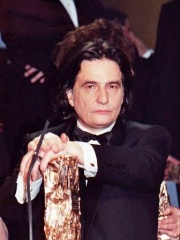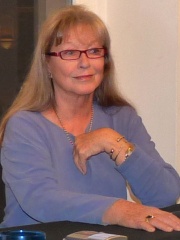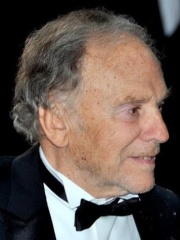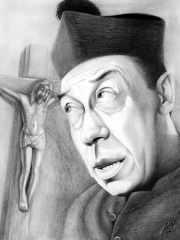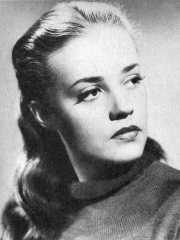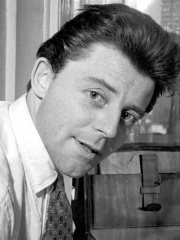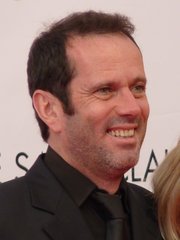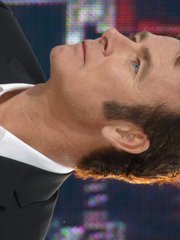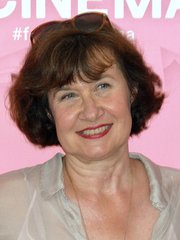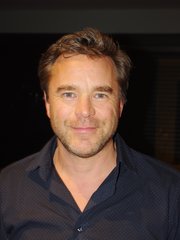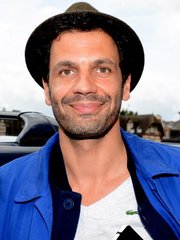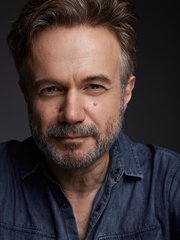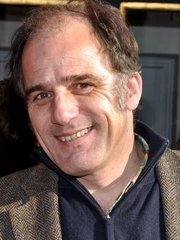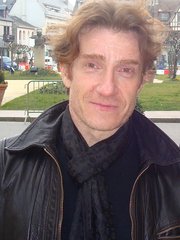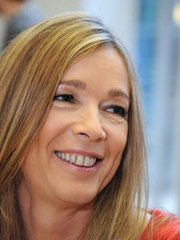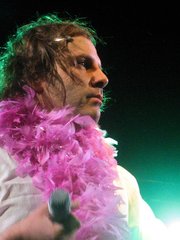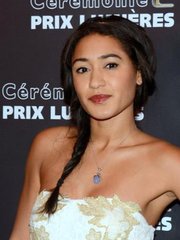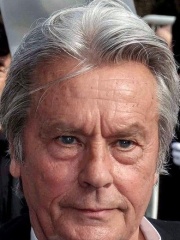
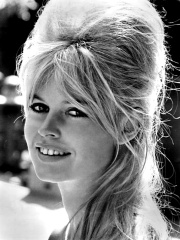
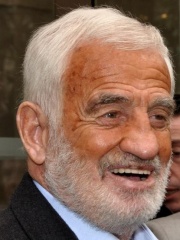
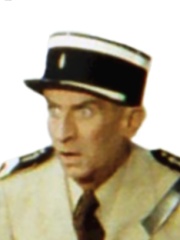
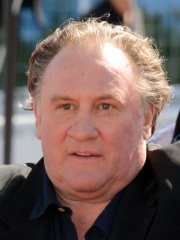
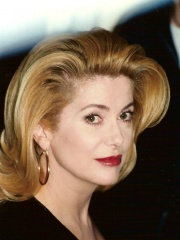
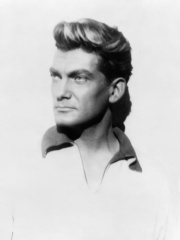
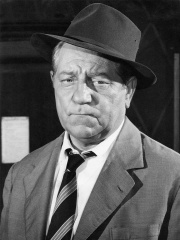
The Most Famous
ACTORS from France
This page contains a list of the greatest French Actors. The pantheon dataset contains 13,578 Actors, 522 of which were born in France. This makes France the birth place of the 6th most number of Actors behind Canada, and South Korea.
Top 10
The following people are considered by Pantheon to be the top 10 most legendary French Actors of all time. This list of famous French Actors is sorted by HPI (Historical Popularity Index), a metric that aggregates information on a biography's online popularity. Visit the rankings page to view the entire list of French Actors.

1. Alain Delon (1935 - 2024)
With an HPI of 85.79, Alain Delon is the most famous French Actor. His biography has been translated into 123 different languages on wikipedia.
Alain Fabien Maurice Marcel Delon (French: [alɛ̃ dəlɔ̃]; 8 November 1935 – 18 August 2024) was a French actor, film producer, screenwriter, singer, and businessman. Acknowledged as a cultural and cinematic leading man of the 20th century, Delon emerged as one of the foremost European actors of the late 1950s to the 1980s, and became an international sex symbol. He is regarded as one of the most well-known figures of the French cultural landscape. His style, looks, and roles, which made him an international icon, earned him enduring popularity. Delon achieved critical acclaim for his roles in films such as Women Are Weak (1959), Purple Noon (1960), Rocco and His Brothers (1960), L'Eclisse (1962), The Leopard (1963), Any Number Can Win (1963), The Black Tulip (1964), The Last Adventure (1967), Le Samouraï (1967), The Girl on a Motorcycle (1968), La Piscine (1969), Le Cercle Rouge (1970), Un flic (1972), and Monsieur Klein (1976). Over the course of his career, Delon worked with many directors, including Luchino Visconti, Jean-Luc Godard, Jean-Pierre Melville, Michelangelo Antonioni, Louis Malle, and Agnès Varda. Delon received many film and entertainment awards throughout his career. In 1985, he won the César Award for Best Actor for his performance in Notre histoire (1984). In 1991, he became a member of France's Legion of Honour. At the 45th Berlin International Film Festival, he won the Honorary Golden Bear. At the 2019 Cannes Film Festival, he received the Honorary Palme d'Or. In addition to his acting career, Delon also recorded the spoken part in the popular 1973 song "Paroles, paroles", a duet with Dalida as the main singing voice. He acquired Swiss citizenship in 1999.

2. Brigitte Bardot (1934 - 2025)
With an HPI of 84.12, Brigitte Bardot is the 2nd most famous French Actor. Her biography has been translated into 119 different languages.
Brigitte Anne-Marie Bardot (French: [bʁiʒit anmaʁi baʁdo]; 28 September 1934 – 28 December 2025), often referred to by her initials B.B., was a French actress, singer, model, and animal rights activist. She became one of the best-known symbols of the sexual revolution and gained international fame for portraying characters associated with hedonistic lifestyles. Although she withdrew from the entertainment industry in 1973, she remained a major pop culture icon. She appeared in 47 films, performed in several musicals, and recorded more than 60 songs. She was awarded the Legion of Honour in 1985. Born and raised in Paris, Bardot was an aspiring ballerina during her childhood. She began her acting career in 1952 and achieved international recognition in 1957 for her role in And God Created Woman (1956), catching the attention of many French intellectuals and earning her the nickname "sex kitten". She was the subject of philosopher Simone de Beauvoir's 1959 essay The Lolita Syndrome, which described her as a "locomotive of women's history" and built upon existentialist themes to declare her the most liberated woman of France. She won a 1961 David di Donatello Best Foreign Actress Award for her work in The Truth (1960). Bardot later starred in Jean-Luc Godard's film Le Mépris (1963). For her role in Louis Malle's film Viva Maria! (1965), she was nominated for the BAFTA Award for Best Foreign Actress. French president Charles de Gaulle called Bardot "the French export as important as Renault cars". After retiring from acting in 1973, Bardot became an animal rights activist and created the Brigitte Bardot Foundation. She was known for her strong personality, outspokenness, and speeches on animal welfare, and for her long-term support of far-right views. Fined twice for public insults, and convicted five times for inciting racial hatred for her criticism of Muslims in France and calling residents of Réunion "savages". She responded: "I never knowingly wanted to hurt anybody. It is not in my character [...] Among Muslims, I think there are some who are very good and some hoodlums, like everywhere." Bardot was a member of the Global 500 Roll of Honour of the United Nations Environment Programme and received several awards and accolades from UNESCO and People for the Ethical Treatment of Animals (PETA). She died at the age of 91 in December 2025.

3. Jean-Paul Belmondo (1933 - 2021)
With an HPI of 81.93, Jean-Paul Belmondo is the 3rd most famous French Actor. His biography has been translated into 93 different languages.
Jean-Paul Charles Belmondo (French pronunciation: [ʒɑ̃pɔl ʃaʁl(ə) bɛlmɔ̃do]; 9 April 1933 – 6 September 2021) was a French actor. Initially associated with the New Wave of the 1960s, he was a major French film star for several decades from the 1960s onward, frequently portraying police officers and criminals in action thriller films. His best known credits include Breathless (1960), That Man from Rio (1964), Pierrot le Fou (1965), Borsalino (1970), and The Professional (1981). An undisputed box-office champion along with Louis de Funès and Alain Delon, Belmondo attracted nearly 160 million viewers over his 50-year career. Between 1969 and 1982, he starred in the four most popular films of the year in France, surpassed only by de Funès: The Brain (1969), Fear Over the City (1975), Animal (1977), Ace of Aces (1982). Belmondo frequently played heroic, brave, and virile characters, which made him popular with a wide audience both in France and abroad. Despite being heavily courted by Hollywood, Belmondo refused to appear in English-language films. During his career, he was called the French counterpart of actors such as James Dean, Marlon Brando and Humphrey Bogart. Described as an icon and national treasure of France, Belmondo was seen as an influential actor in French cinema and an important figure in shaping European cinema. In 1989, Belmondo won the César Award for Best Actor for his performance in Itinéraire d'un enfant gâté. He was nominated for two BAFTA Awards throughout his career. In 2011, Belmondo received the Palme d'honneur at the Cannes Film Festival, and in 2017 he received the César d'honneur at the 42nd César Awards.

4. Louis de Funès (1914 - 1983)
With an HPI of 81.86, Louis de Funès is the 4th most famous French Actor. His biography has been translated into 87 different languages.
Louis Germain David de Funès de Galarza (French: [lwi d(ə) fynɛs]; 31 July 1914 – 27 January 1983) was a French actor and comedian. According to a series of polls conducted since the late 1960s, he is France's favourite actor, having played over 150 roles in film and over 100 on stage. His acting style is remembered for its high-energy performance and his wide range of facial expressions and tics. A considerable part of his best-known acting was directed by Jean Girault. The larger-than-life, conservative petit bourgeois characters he played, who typically kissed up to authority while persecuting their subordinates, particularly resonated with the changing Western societies of the 1960s and drove him to success. However, in his private life, De Funès was a notoriously shy and reserved man, and a devout Catholic. One of the most famous French actors of all time, Louis de Funès remains to this day the most bankable actor in French cinema history. He enjoys widespread international recognition: in addition to his immense fame in the French-speaking world, he remains a household name throughout most of continental Europe including the former Eastern Bloc, the former Soviet Union, as well as Iran, Turkey, and Israel. Despite this international popularity, Louis de Funès remains an obscure figure in the English-speaking world. He was exposed to a wider audience only once in the United States, in 1973, with the release of The Mad Adventures of Rabbi Jacob, which is best remembered for its Rabbi Jacob dance scene and was nominated for a Golden Globe Award. De Funès has two museums dedicated to his life and acting: one in the Château de Clermont, near Nantes, where he resided, as well as another in the town of Saint-Raphaël, Southern France.
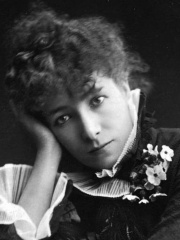
5. Sarah Bernhardt (1844 - 1923)
With an HPI of 81.34, Sarah Bernhardt is the 5th most famous French Actor. Her biography has been translated into 162 different languages.
Sarah Bernhardt (French: [saʁa bɛʁnɑʁt]; born Henriette-Rosine Bernard; 22 October 1844 – 26 March 1923) was a French stage actress who starred in some of the most popular French plays of the late 19th and early 20th centuries, including La Dame aux Camélias by Alexandre Dumas fils, Ruy Blas by Victor Hugo, Fédora and La Tosca by Victorien Sardou, and L'Aiglon by Edmond Rostand. She played female and male roles, including Shakespeare's Hamlet. Rostand called her "the queen of the pose and the princess of the gesture", and Hugo praised her "golden voice". She made several theatrical tours worldwide and was one of the early prominent actresses to make sound recordings and act in motion pictures. She is also linked with the success of artist Alphonse Mucha, whose work she helped to publicize. Mucha became one of the more sought-after artists of this period for his Art Nouveau style.

6. Gérard Depardieu (b. 1948)
With an HPI of 80.19, Gérard Depardieu is the 6th most famous French Actor. His biography has been translated into 81 different languages.
Gérard Xavier Marcel Depardieu (UK: , US: , French: [ʒeʁaʁ ɡzavje maʁsɛl dəpaʁdjø] ; born 27 December 1948) is a French actor. Considered an icon of French cinema in the same way as Jean Gabin and Alain Delon, he has completed over 200 films since 1967, most of which as a lead actor. Depardieu has worked with over 150 film directors including François Truffaut, Bertrand Blier, Maurice Pialat, Alain Resnais, Claude Chabrol, Ridley Scott, Peter Weir, Jean-Luc Godard, and Bernardo Bertolucci. He is the second highest-grossing actor in the history of French cinema behind Louis de Funès. Among his films, about 60 have sold more than one million tickets in France. He has portrayed numerous historical and fictitious figures including Cyrano de Bergerac, Georges Danton, Christopher Columbus, Honoré de Balzac, Alexandre Dumas, Auguste Rodin, Jean Valjean, Edmond Dantès, Porthos, commissioner Maigret, Joseph Stalin and Grigori Rasputin, as well as Obelix in four of the live action Asterix films. Depardieu is also a film producer, businessman and vineyard owner. He has occasionally directed films and performed as a singer. His body of work includes many television productions, several records and, as of 2025, 19 stage plays and 9 books. Growing up in poverty in Châteauroux, central France, Depardieu had a difficult youth before settling in Paris where he became an actor. In 1974, he had his breakthrough role in Going Places, becoming an overnight star. Depardieu quickly established himself as a leading actor in European cinema and proved himself a versatile performer by appearing in a wide variety of productions, including drama, comedy, crime and avant-garde films. He has received acclaim for his performances in The Last Metro (1980), for which he won the César Award for Best Actor, in Police (1985), for which he won the Volpi Cup for Best Actor, Jean de Florette (1986), and Cyrano de Bergerac (1990), for which he won the Best Actor award at the Cannes Film Festival and his second César Award for Best Actor as well as garnering a nomination for the Academy Award for Best Actor. He started a Hollywood career with Green Card (1990), winning a Golden Globe Award, and later appeared in several big-budget English-language films, including 1492: Conquest of Paradise (1992), The Man in the Iron Mask (1998), and Life of Pi (2012). Depardieu is a Chevalier of the Légion d'honneur and Chevalier of the Ordre national du Mérite. He was granted citizenship of Russia in January 2013 (officially adopted name in Russian: Жерар Ксавие Депардьё, romanized: Zherar Ksavie Depardyo), and became a cultural ambassador of Montenegro during the same month. During the early 2010s, his tax exile in Russia and his support of Vladimir Putin caused controversy in France. Depardieu was accused of sexual misconduct as early as the 1990s, though this did not develop into formal complaints until the late 2010s. In December 2020, French authorities charged him with rape. Depardieu denied any wrongdoing but a number of controversies since 2020, not limited to the accusations of rape, damaged his popularity in France and abroad, resulting in his being stripped in 2023 of the National Order of Quebec. In May 2025, he was convicted of sexual assault against two women in a separate case. He has appealed against his sentencing.

7. Catherine Deneuve (b. 1943)
With an HPI of 79.35, Catherine Deneuve is the 7th most famous French Actor. Her biography has been translated into 76 different languages.
Catherine Fabienne Dorléac (born 22 October 1943), known professionally as Catherine Deneuve (UK: , US: , French: [katʁin dənœv] ), is a French actress. She is considered one of the greatest European actresses on film. In 2020, The New York Times ranked her as one of the greatest actors of the 21st century. Deneuve made her screen debut in 1957 at age 13, in a film shot the previous year when she was only 12. A major figure of the New Wave, she became, like Brigitte Bardot and Alain Delon, one of the best-known French artists in the world. In a career spanning nearly 70 years, she has played more than a hundred roles and is recognized in France and internationally for being one of the key faces of the musical film genre with appearances in The Umbrellas of Cherbourg, The Young Girls of Rochefort, Donkey Skin, 8 Women and The Beloved. Early in her career, she gained acclaim for her portrayals of aloof and mysterious beauties while working for well-known directors such as Luis Buñuel, François Truffaut, Jacques Demy, Roman Polanski, and Agnès Varda. She played in films attracting a total of nearly 99 million spectators in theaters, making her the working actress with the most admissions in France. In 1985, she succeeded Mireille Mathieu as the official face of Marianne, France's national symbol of liberty. She has received numerous accolades over her career including a César Award for The Last Metro and the Venice Film Festival's Volpi Cup for Best Actress for Place Vendôme, as well as nominations for an Academy Award for Indochine and a BAFTA Award for Belle de Jour. To English-speaking audiences, Deneuve is best known for The Hunger. Her other notable films include Repulsion, The April Fools, Scene of the Crime and My Favorite Season. She has received honorary awards, including the Berlin International Film Festival's Golden Bear in 1998, the Cannes Film Festival's Honorary Palme d'Or in 2005, and the Venice Film Festival's Golden Lion in 2022.

8. Jean Marais (1913 - 1998)
With an HPI of 77.28, Jean Marais is the 8th most famous French Actor. His biography has been translated into 68 different languages.
Jean-Alfred Villain-Marais (11 December 1913 – 8 November 1998), known professionally as Jean Marais (French: [ʒɑ̃ maʁɛ]), was a French actor, film director, theatre director, painter, sculptor, visual artist, writer and photographer. He performed in over 100 films and was the lover, muse and friend of acclaimed director Jean Cocteau. In 1996, he was awarded the French Legion of Honor for his contributions to French cinema.

9. Jean Gabin (1904 - 1976)
With an HPI of 76.22, Jean Gabin is the 9th most famous French Actor. His biography has been translated into 74 different languages.
Jean Gabin Alexis Moncorgé (born Jean-Alexis Moncorgé), known as Jean Gabin (French: [ʒɑ̃ gabɛ̃]; 17 May 1904 – 15 November 1976), was a French actor and singer. Considered a key figure in French cinema, he starred in several classic films, including Pépé le Moko (1937), La grande illusion (1937), Le Quai des brumes (1938), La bête humaine (1938), Le jour se lève (1939), and Le plaisir (1952). During his career, he twice won the Silver Bear for Best Actor from the Berlin International Film Festival and the Volpi Cup for Best Actor from the Venice Film Festival, respectively. Gabin was made a member of the Légion d'honneur in recognition of the important role he played in French cinema.
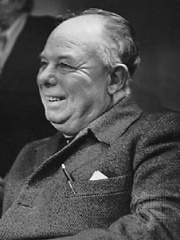
10. Jean Renoir (1894 - 1979)
With an HPI of 75.28, Jean Renoir is the 10th most famous French Actor. His biography has been translated into 65 different languages.
Jean Renoir (French: [ʁənwaʁ]; 15 September 1894 – 12 February 1979) was a French filmmaker, actor, producer and author. His La Grande Illusion (1937) and The Rules of the Game (1939) are often cited by critics as among the greatest films ever made. In 2002, he was ranked fourth on the BFI's Sight & Sound poll of the greatest directors. Among numerous honours accrued during his lifetime, he received a Lifetime Achievement Academy Award in 1975. Renoir was the son of the painter Pierre-Auguste Renoir and the uncle of the cinematographer Claude Renoir. With Claude, he made The River (1951), the first color film shot in India. A lifelong lover of theater, Renoir turned to the stage for The Golden Coach (1952) and French Cancan (1955). He was one of the first filmmakers to be known as an auteur; the critic Penelope Gilliatt said a Renoir shot could be identified "in a thousand miles of film." Pauline Kael wrote that "At his greatest, Jean Renoir expresses the beauty in our common humanity—the desires and hopes, the absurdities and follies, that we all, to one degree or another, share." Per The New York Times: "The style that ran through Mr. Renoir's films — a mixture of tenderness, irony and Gallic insouciance‐was caught in a famous line from his 1939 masterpiece, The Rules of the Game. It was spoken by Octave, played by the director himself: 'You see, in this world, there is one awful thing, and that is that everyone has his reasons.'”
People
Pantheon has 522 people classified as French actors born between 1615 and 1999. Of these 522, 321 (61.49%) of them are still alive today. The most famous living French actors include Gérard Depardieu, Catherine Deneuve, and Leslie Caron. The most famous deceased French actors include Alain Delon, Brigitte Bardot, and Jean-Paul Belmondo. As of April 2024, 48 new French actors have been added to Pantheon including Christian Vadim, Franck Dubosc, and Anne Le Ny.
Living French Actors
Go to all RankingsGérard Depardieu
1948 - Present
HPI: 80.19
Catherine Deneuve
1943 - Present
HPI: 79.35
Leslie Caron
1931 - Present
HPI: 74.38
Isabelle Huppert
1953 - Present
HPI: 73.17
Isabelle Adjani
1955 - Present
HPI: 72.98
Sophie Marceau
1966 - Present
HPI: 72.18
Pierre Richard
1934 - Present
HPI: 72.14
Michèle Mercier
1939 - Present
HPI: 71.54
Fanny Ardant
1949 - Present
HPI: 70.94
Juliette Binoche
1964 - Present
HPI: 70.76
Jean-Pierre Léaud
1944 - Present
HPI: 70.64
Marina Vlady
1938 - Present
HPI: 70.48
Deceased French Actors
Go to all RankingsAlain Delon
1935 - 2024
HPI: 85.79
Brigitte Bardot
1934 - 2025
HPI: 84.12
Jean-Paul Belmondo
1933 - 2021
HPI: 81.93
Louis de Funès
1914 - 1983
HPI: 81.86
Sarah Bernhardt
1844 - 1923
HPI: 81.34
Jean Marais
1913 - 1998
HPI: 77.28
Jean Gabin
1904 - 1976
HPI: 76.22
Jean Renoir
1894 - 1979
HPI: 75.28
Jean-Louis Trintignant
1930 - 2022
HPI: 75.04
Fernandel
1903 - 1971
HPI: 74.72
Jeanne Moreau
1928 - 2017
HPI: 74.69
Gérard Philipe
1922 - 1959
HPI: 74.57
Newly Added French Actors (2025)
Go to all RankingsChristian Vadim
1963 - Present
HPI: 53.85
Franck Dubosc
1963 - Present
HPI: 52.95
Anne Le Ny
1962 - Present
HPI: 52.49
Guillaume de Tonquédec
1966 - Present
HPI: 51.94
Mehdi Nebbou
1971 - Present
HPI: 51.91
Tristán Ulloa
1970 - Present
HPI: 50.98
Frédéric Pierrot
1960 - Present
HPI: 49.96
Thierry Frémont
1962 - Present
HPI: 49.58
Hélène Rollès
1966 - Present
HPI: 49.28
Julia Channel
1973 - Present
HPI: 49.17
Philippe Katerine
1968 - Present
HPI: 48.75
Joséphine Jobert
1985 - Present
HPI: 48.70
Overlapping Lives
Which Actors were alive at the same time? This visualization shows the lifespans of the 25 most globally memorable Actors since 1700.

